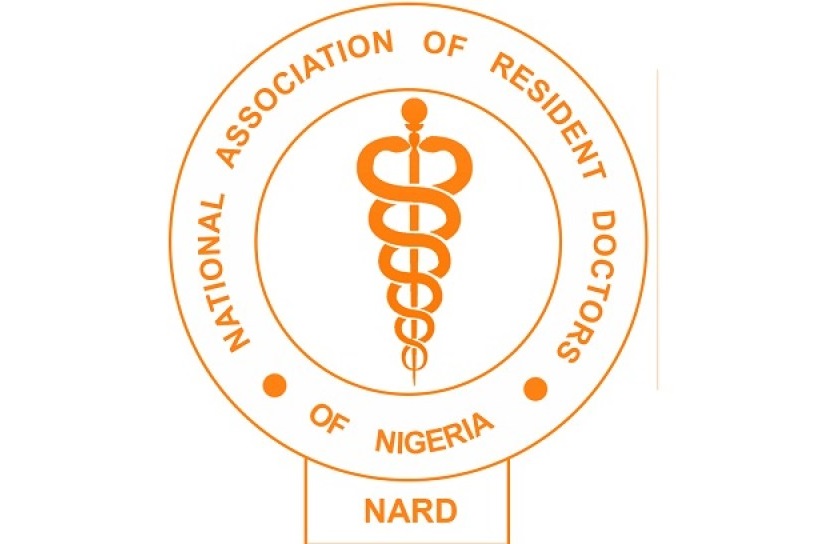Doctors’ strike, a shame on government
The ongoing strike will worsen healthcare conditions in Nigeria. Already, the numbers show the dismal healthcare situation in the country.

The Association of Resident Doctors (ARD)
The strike action embarked upon by the National Association of Resident Doctors (NARD) on April 1, 2021 shows the trust deficit of the Buhari administration. It also points to government’s empty promises and hypocrisy, as President Muhammadu Buhari embarked on medical tourism to the United Kingdom for ‘medical checkup’ while the resident doctors’ industrial action was just about to commence. Taking fresh promises by government to address their demands with a pinch of salt, NARD directed its members, put at about 16,000 nationwide, to down tools, an act that has paralyzed an important tier of health system in Nigeria.
The resident doctors are asking for the payment of all salary arrears, a review of the current hazard allowance to 50 per cent of consolidated basic salaries of all health workers, and the payment of the outstanding COVID-19 allowance. A statement by NARD’s president, Dr Uyilawa Okhuaihesuyi, outlining the association’s several demands, reads partly as follows: “Immediate payment of all salary arrears, including March salaries for our members in all federal and state tertiary health institutions across the country, especially ASUTH, IMSUTH and UNIMEDTH; upward review of the current hazard allowance to 50 per cent of consolidated basic salaries of all health workers; payment of the outstanding COVID-19 inducement allowance especially in state owned-tertiary institutions; and payment of death in service insurance for all health workers who died as a result of COVID-19 infection or other infectious diseases in the country.”
- Food security: Expert canvases urban farming
- Odumakin dies at 59, as Buhari, Obasanjo, ACF, others mourn
The ongoing strike will worsen healthcare conditions in Nigeria. Already, the numbers show the dismal healthcare situation in the country. Instead of improving, it is actually worse than what the situation was in the 1970s and 1980s. For instance, the doctor-patient ratio is put at 3.8 doctors per 10,000 people, instead of the United Nations recommended one doctor per 1,000 people. The country is responsible for more than 20 per cent of global maternal mortality. The infant mortality rate for Nigeria in 2020 was 59.181 deaths per 1000 live births, one of the worst in the world. Nigeria’s healthcare workers are grossly underpaid, one of the reasons for the ongoing strike. Also, the World Health Organizations (WHO) has established that, as against health care being one of the social services governments should render to their citizens, 70 per cent of Nigeria’s health care spending is out-of-pocket. That is to say the majority of Nigerians pay for their healthcare.
The situation is made worse by the collapse of both primary and secondary tiers of healthcare, putting enormous pressure on tertiary healthcare institutions. In many primary healthcare centers and general hospitals across Nigeria, there is the shortage of medical doctors and other medical personnel, laboratories, testing kits, and other facilities necessary for effective service delivery. Unfortunately, the Buhari administration, which came on board on a populist agenda to fix the health sector and halt medical tourism, has not made any significant impact in the sector in the last six years. Ironically, Buhari is a very bad example of how to end medical tourism. Between 2017 and 2018, he travelled abroad at least three times for medical reasons and one of the trips lasted for over 100 days. Government officials at all levels and affluent Nigerians have taken to medical tourism as a lifestyle.
We call on the Buhari administration to redeem its image by paying resident doctors their salaries and allowances. It is unheard of that doctors, who are on the frontline in the fight against COVID-19, are neither insured nor paid a reasonable hazard allowance. If government makes a commitment to any labour union, it must ensure the contents and intents of such commitments are captured in the annual budget and adequate financial provisions made to redeem such promises. Government’s integrity is at stake in this face-off with resident doctors. Redeeming its image will halt the impending but avoidable deaths, agony and frustration due to resident doctors’ strike.
